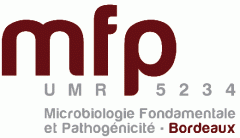Genomes are continuously invaded by mobile DNAs. Among them, retroviruses constitute potential pathogenic elements leading to pandemic, as HIV-1, or source of possible future zoonosis, as foamy virus (PFV). Cell chromatin where occurs their integration behaves as the first non-return contact point between the Host and these incoming infectious agents. Integration is catalysed within a complex formed between the incoming retroviral intasome (integrase, IN, and viral DNA complex) and the cell nucleosomes. We have developed over the last years biological materials and cutting edge methodologies for monitoring these functional interactions. Thanks to these approaches, we now plan to depict the molecular mechanisms underlying the cell invasion by these pathogenic genomes focussing on different retroviruses displaying distinct infection behaviours including the pandemic HIV-1 and the zoonotic PFV. Comparison between the different retroviral models will allow underlining the specificity of their regulation in the host leading to a better understanding of their cell invasion processes and helping in anticipating and preventing future zoonosis.
Our team will investigate i) the cell response to incoming viral genomes, ii) the mechanisms of viral genome tethering to host chromatin, iii) the retroviral Intasome/nucleosome interfaces and iv) new therapeutic approaches targeting these processes. For these purposes, we will use a combination of biochemical (protein purification, functional in vitro enzymatic assays, interaction assays…), biophysics (BLItz, DSL,), cell biology (viral infection and transduction, flow cytometry, immunofluorescence…) and structural biology approaches (CryoEM, X-rays crystallography).
One PhD and one postdoctoral fellow are expected to be recruited for this project.
